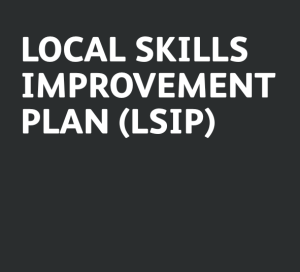Cumbria Chamber of Commerce’s Budget Response Survey has revealed significant concerns among local businesses about the impact of the UK Government’s Autumn Budget, with responses highlighting potential challenges to growth, recruitment, and investment.
The survey received 90 responses with business and professional services being the most represented sector (26%), followed by hospitality and leisure (21%) and manufacturing and engineering (15%). The majority of respondents (71%) were limited companies, with 45% based in Westmorland and Furness, 40% in Cumberland, and the remaining 15% operating in both council areas.
Key findings
Businesses voiced strong concerns about the planned increase in Employers’ National Insurance (NI), with 60% expecting it to limit recruitment and 61% expecting to have to increase prices to offset the increase labour costs. 57% of businesses surveyed also expect to reduce future wage settlements, while nearly half (49%) expect to reduce investment in growth. Only 10% believe the increase in Employers’ NI will have no impact on their business.
The changes to the National Minimum Wage (NMW) announced in the Budget are also causing unease among businesses. Over half (51%) expect higher wage costs for staff paid at the NMW level and 57% predict increased costs for workers earning above this threshold. These wage pressures are expected to lead to reduced investment in growth for 50% of respondents and limited recruitment for 49%. Additionally, 50% of businesses anticipate passing on higher costs to customers through price increases. 12% of respondents are expecting to have to make redundancies.
Comments provide examples of how the Budget measures will impact businesses
Respondents were also asked to comment on whether the changes in capital gains tax will have an impact on their business. Most of the comments explained that the changes would have little / minimal effect on their business. However, there were stronger opinions among those considering selling their businesses with one hospitality business commenting: “We are trying to sell and retire so after nearly 40 years of working hard we will have a poor retirement.”
The survey also asked businesses to comment about the impact of the Budget measures (positive or negative). A selection of responses include:
A digital & creative business said: “[The increase in Employers NI] will cost us approx. £15k a year extra, having taken minimum wage as the owner and reinvested profits back into employment and business growth, it will now drive a halt to the pace of that growth moving forward.”
A health and social care business said: “Overall our sector will be very adversely affected, with the range of additional admin costs, from the increase in Employer NI and the reduction in the threshold at which it is paid, per patient / resident in the order of £8000, per resident, per year. Add the additional wage costs from the higher than inflation increase for NMW on all staff wages and which are already exacerbated by poor recruitment and we are looking at a possible £200k increase in wage costs.”
A hospitality business said: “The budget has been very negative to our business. We are unable to increase our prices at the same rate as the costs are increasing. This can only have a negative impact on our business going forward.”
When asked whether they were considering making any changes to their business as a result of the Budget announcements, respondents answered:
A transport business said: “Downsizing is on the cards, reducing employment opportunities for people in the local community.”
A manufacturing & engineering business said: “I decided not to take on more staff due to new employment rules.”
A land-based business said: “Yes, we are having to re-think how we hire especially unskilled workers who need a lot of training. The rise in all the minimum wage bands has now made hiring very expensive.”
Responses to the question of whether there was anything not in the Budget that businesses would like to have seen include:
A hospitality business said: “Lower VAT on tourism businesses. We are increasingly uncompetitive with overseas destinations.”
A business & professional services business said: “Business rates reform – and not to increase the burden on small businesses. Measures to give business confidence and not to put the whole of the increased tax burden on small businesses. Drop the proposed employment reforms (day one rights). We have traditionally taken on a lot of school leavers and graduates – we can no longer take the risk of them not working out so will have to stop taking them on.”
A manufacturing & engineering business said: “More incentivisation for capital investment and R&D similar to that of recent years.”
Suzanne Caldwell, Managing Director of Cumbria Chamber of Commerce said:
“We knew this was an immensely challenging Budget for business which gave us real cause of concern. So we undertook this survey to give us more robust evidence to underpin the ad hoc and anecdotal comments we were getting from businesses following the Budget.
The findings of our survey highlight the significant challenges local businesses, of all sizes, face as they navigate the implications of the Autumn Budget. Many feel the burden has been shifted to businesses, threatening growth and employment.
This is a significant issue for businesses individually and, crucially, at a time when so much of the Government’s focus for future investment and services is predicated on business growth as the source of funding.
The impacts on business are also expected to have a negative impact on efforts to ensure genuine opportunity for all and get more people into meaningful and rewarding work.
These Budget measures are particularly concerning given the significant discussions between the current Government, business organisations (such as the British Chambers of Commerce and individual Chambers) and individual businesses in the run-up to both the Election and the Budget. The measures discussed in this research are certainly not what was recommended!
We urge the Government to engage with businesses and business organisations to mitigate these impacts and foster a thriving economic environment in which businesses can grow.”
Managing Director of Cumbria Tourism, Gill Haigh, added:
“At last week’s Cumbria Tourism Future Trends and Innovation Event, supported by Cumbria Chamber of Commerce, the impact of the Budget was a key topic of discussion with concerns raised by two of the key speakers: the CEO of UK Hospitality, Kate Nichols and NFU President, Tom Bradshaw. Our own recent business survey in October also demonstrated that rising costs still loom large over businesses and the recent announcements in the Autumn Budget make these challenges all the more concerning. We will work closely with our partner organisations across the county to make sure Cumbria’s voice is represented loud and clear with national influencers and decision-makers.”






